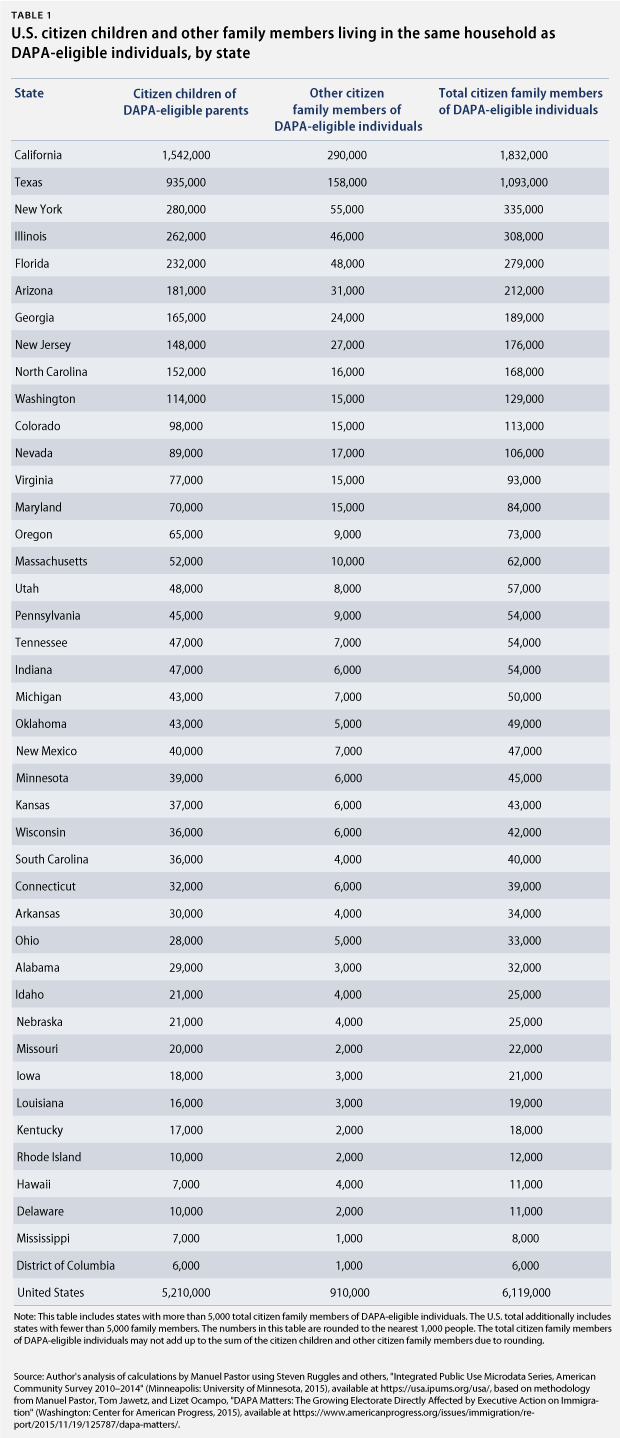On April 18, the U.S. Supreme Court is scheduled to hear oral arguments in United States v. Texas, the lawsuit blocking implementation of the expansion of Deferred Action for Childhood Arrivals, or DACA, and the creation of Deferred Action for Parents of Americans and Lawful Permanent Residents, or DAPA. These policies allow certain unauthorized immigrants who came to the country as children or are the parents of U.S. citizens or lawful permanent residents to request temporary protection from deportation and the opportunity to apply for a work permit.
More than 6.1 million U.S. citizens in states across the nation live with a family member who will remain in fear of deportation if the Supreme Court rules against DAPA in United States v. Texas. California, which joined 15 other states and the District of Columbia in filing an amicus brief in support of the deferred action policies, leads the way with more than 1.8 million U.S citizen family members of DAPA-eligible individuals. Texas, which spearheaded the lawsuit to block implementation, has the second-highest number of affected U.S. citizens at nearly 1.1 million.

Previously, the University of Southern California’s Center for the Study of Immigrant Integration and the Center for American Progress projected the number of U.S. citizens who will be of voting age in 2016 and 2020 and live in the same household as a DAPA-eligible family member. This analysis follows up on that report and provides updated state-by-state estimates based on newly available data of the total number of U.S. citizens currently living in the same household as a DAPA-eligible family member, including those who will not reach voting age in 2016 or 2020.
These numbers are conservative estimates, since they do not include U.S. citizen family members of people eligible for DACA or expanded DACA or U.S. citizen children or other family members who do not live in the same household as a DAPA-eligible individual. Implementation of DAPA and expanded DACA would temporarily relieve millions of American citizens and families from the constant fear of having their families torn apart.
Lizet Ocampo is the Associate Director of Immigration at the Center for American Progress.